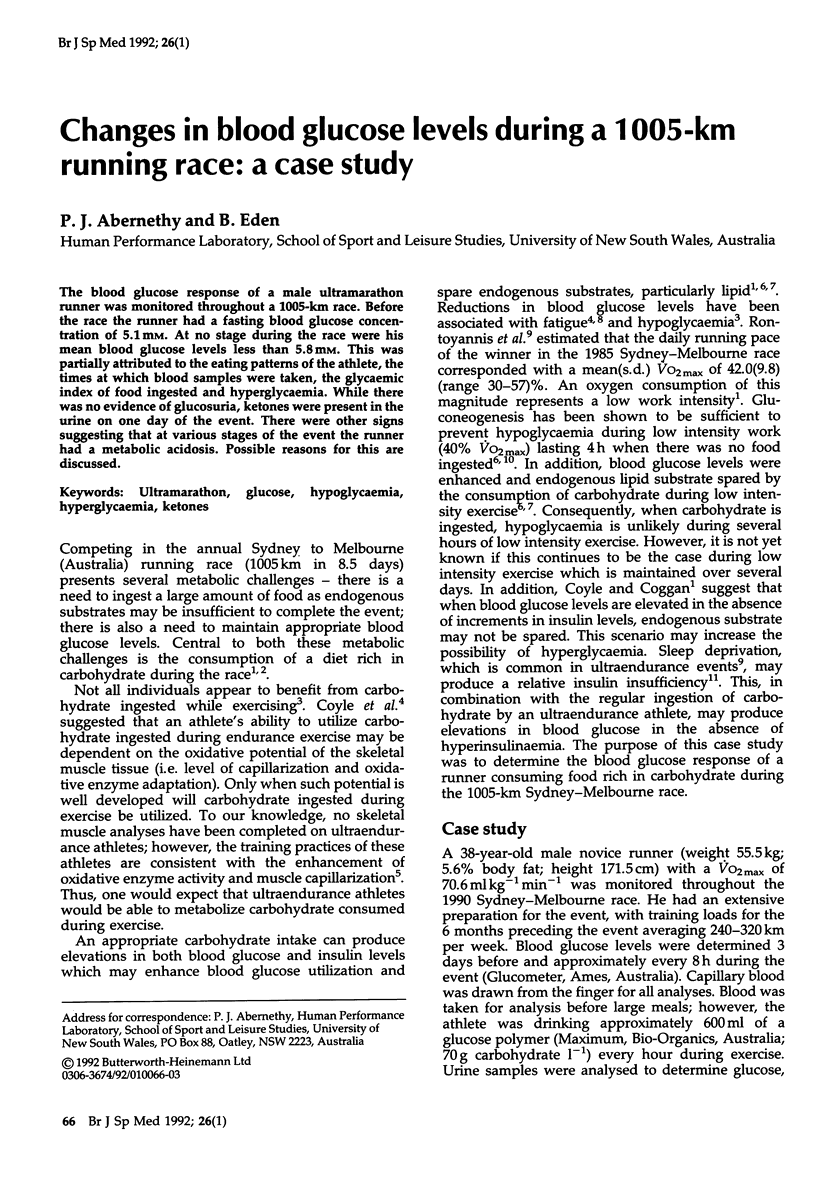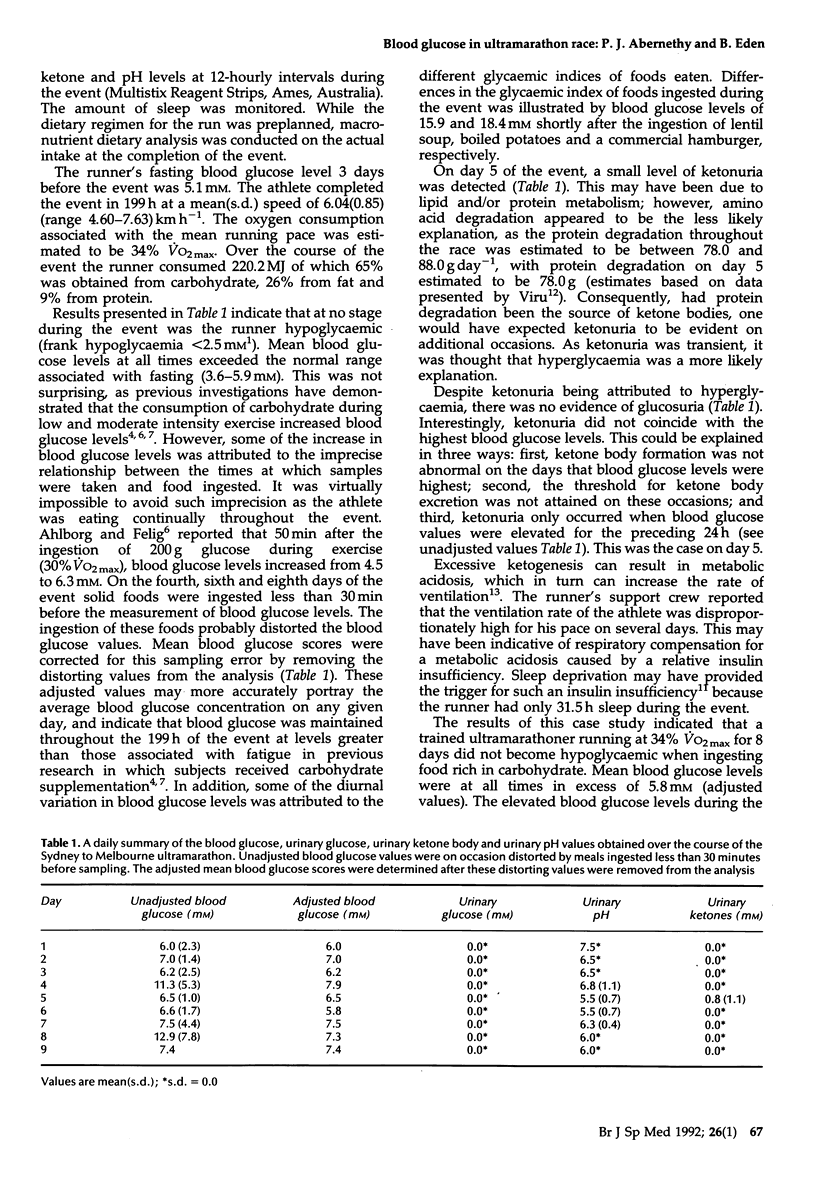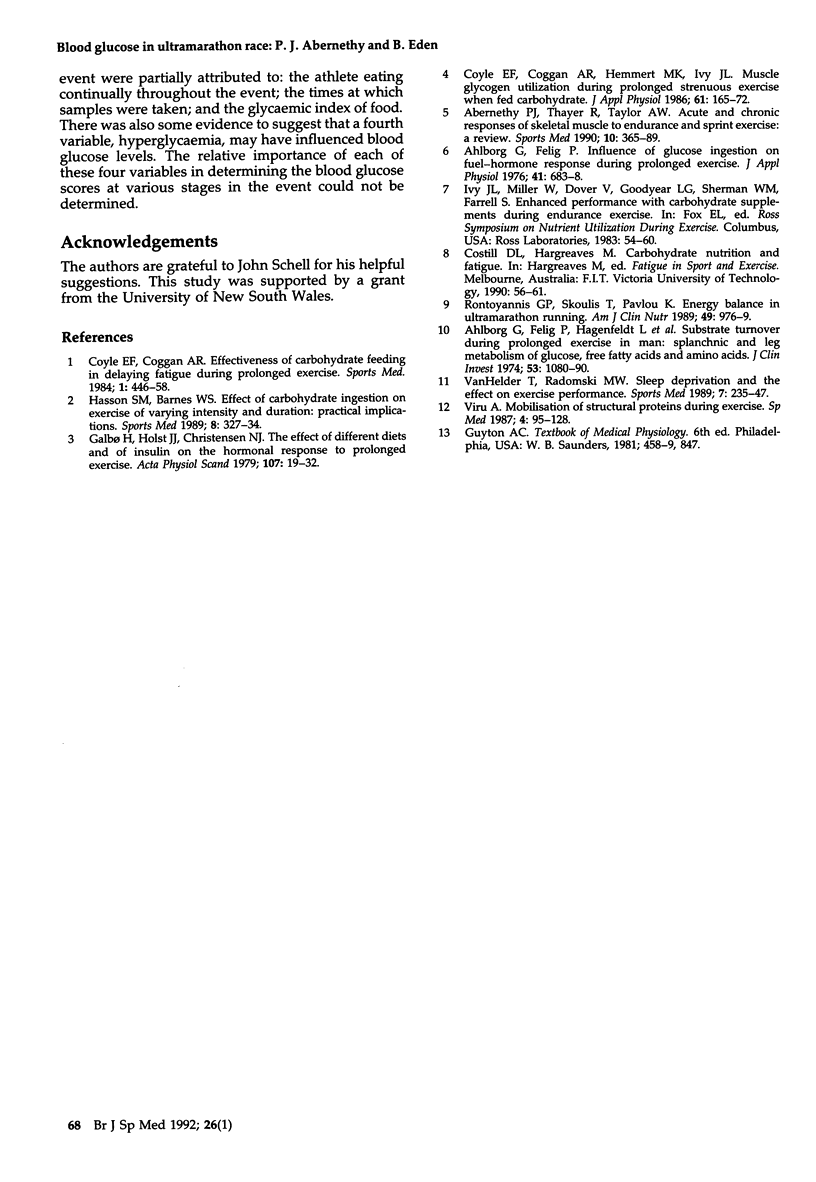Abstract
The blood glucose response of a male ultramarathon runner was monitored throughout a 1005-km race. Before the race the runner had a fasting blood glucose concentration of 5.1 mM. At no stage during the race were his mean blood glucose levels less than 5.8 mM. This was partially attributed to the eating patterns of the athlete, the times at which blood samples were taken, the glycaemic index of food ingested and hyperglycaemia. While there was no evidence of glucosuria, ketones were present in the urine on one day of the event. There were other signs suggesting that at various stages of the event the runner had a metabolic acidosis. Possible reasons for this are discussed.
Full text
PDF


Selected References
These references are in PubMed. This may not be the complete list of references from this article.
- Abernethy P. J., Thayer R., Taylor A. W. Acute and chronic responses of skeletal muscle to endurance and sprint exercise. A review. Sports Med. 1990 Dec;10(6):365–389. doi: 10.2165/00007256-199010060-00004. [DOI] [PubMed] [Google Scholar]
- Ahlborg G., Felig P., Hagenfeldt L., Hendler R., Wahren J. Substrate turnover during prolonged exercise in man. Splanchnic and leg metabolism of glucose, free fatty acids, and amino acids. J Clin Invest. 1974 Apr;53(4):1080–1090. doi: 10.1172/JCI107645. [DOI] [PMC free article] [PubMed] [Google Scholar]
- Ahlborg G., Felig P. Influence of glucose ingestion on fuel-hormone response during prolonged exercise. J Appl Physiol. 1976 Nov;41(5 Pt 1):683–688. doi: 10.1152/jappl.1976.41.5.683. [DOI] [PubMed] [Google Scholar]
- Coyle E. F., Coggan A. R. Effectiveness of carbohydrate feeding in delaying fatigue during prolonged exercise. Sports Med. 1984 Nov-Dec;1(6):446–458. doi: 10.2165/00007256-198401060-00004. [DOI] [PubMed] [Google Scholar]
- Coyle E. F., Coggan A. R., Hemmert M. K., Ivy J. L. Muscle glycogen utilization during prolonged strenuous exercise when fed carbohydrate. J Appl Physiol (1985) 1986 Jul;61(1):165–172. doi: 10.1152/jappl.1986.61.1.165. [DOI] [PubMed] [Google Scholar]
- Galbo H., Holst J. J., Christensen N. J. The effect of different diets and of insulin on the hormonal response to prolonged exercise. Acta Physiol Scand. 1979 Sep;107(1):19–32. doi: 10.1111/j.1748-1716.1979.tb06438.x. [DOI] [PubMed] [Google Scholar]
- Hasson S. M., Barnes W. S. Effect of carbohydrate ingestion on exercise of varying intensity and duration. Practical implications. Sports Med. 1989 Dec;8(6):327–334. doi: 10.2165/00007256-198908060-00002. [DOI] [PubMed] [Google Scholar]
- Rontoyannis G. P., Skoulis T., Pavlou K. N. Energy balance in ultramarathon running. Am J Clin Nutr. 1989 May;49(5 Suppl):976–979. doi: 10.1093/ajcn/49.5.976. [DOI] [PubMed] [Google Scholar]
- VanHelder T., Radomski M. W. Sleep deprivation and the effect on exercise performance. Sports Med. 1989 Apr;7(4):235–247. doi: 10.2165/00007256-198907040-00002. [DOI] [PubMed] [Google Scholar]
- Viru A. Mobilisation of structural proteins during exercise. Sports Med. 1987 Mar-Apr;4(2):95–128. doi: 10.2165/00007256-198704020-00003. [DOI] [PubMed] [Google Scholar]


